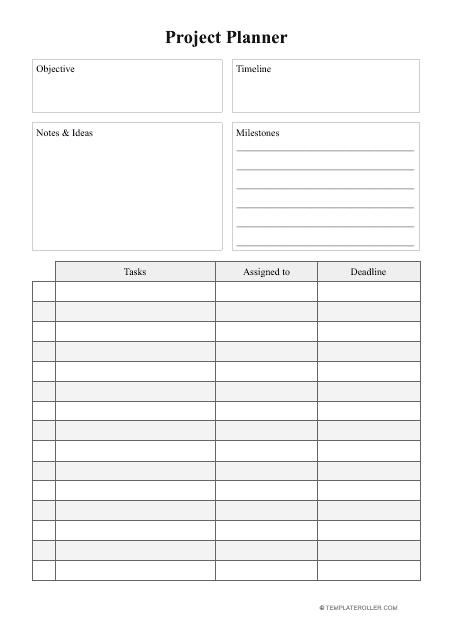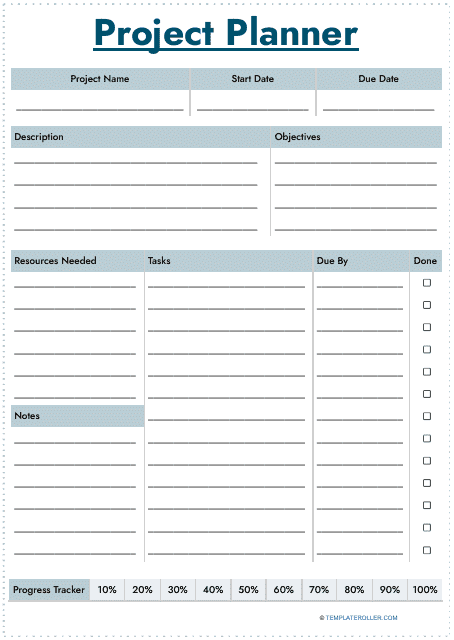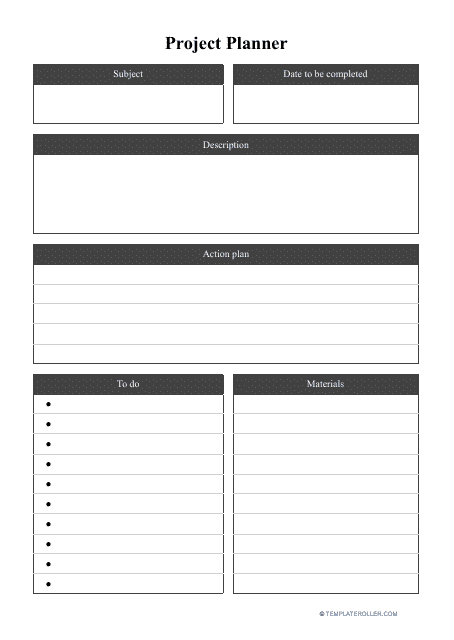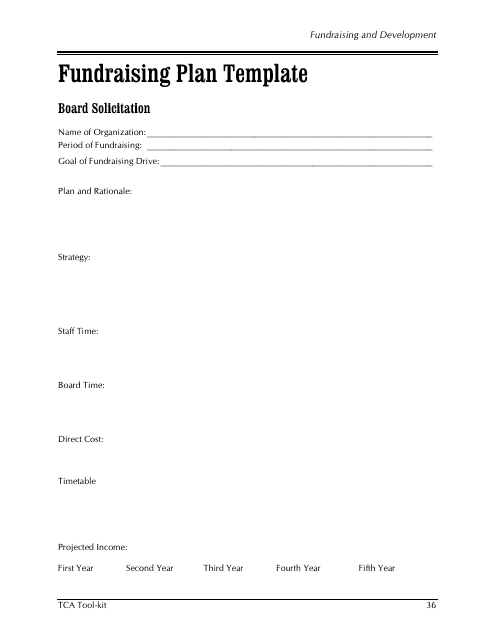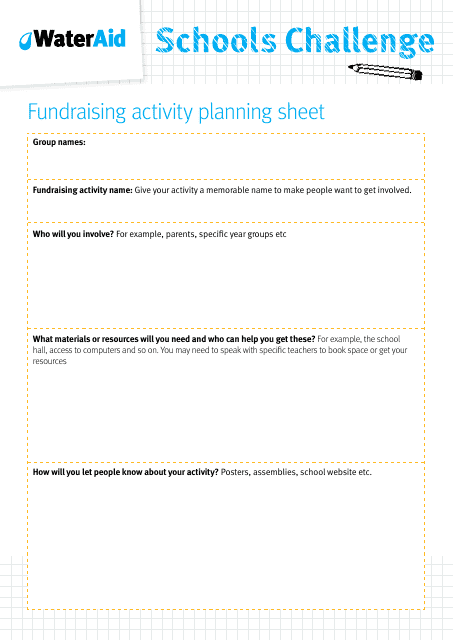Free Project Planner Templates
What Is a Project Plan?
A Project Plan is a written guide prepared to define the objectives of a particular project, lay out the budget, determine the resources required to succeed, and specify how the goals are going to be achieved.
Alternate Name:
- Project Planner.
Usually completed by the project manager and their assistants, this document is essential for any operational, strategic, and compliance project the organization is determined to launch - the team led by the manager will understand their personal responsibilities in relation to the project and the company will be able to identify potential risks and obstacles before certain stages of the project begin.
You can see a full list of Project Plan templates by checking out our library below.
How to Create a Project Plan?
This is how a project manager should compile a Project Planner:
-
Discuss the needs and aspirations of the company with interested parties - your stakeholders or clients. It is crucial to understand the expectations of every person that wants to advance the project in question and allow them to express their personal ideas and reservations regarding the plan.
-
Prepare a list of tasks you want to fulfill within the scope of the project . While the Project Plan template does not have to be the final version of the document, it is a smart idea to set the boundaries of your project and explain how much work awaits the team. Besides, you may need to hire other people to help you out with the project - it is beneficial to know early on what challenges you will meet on your way.
-
Come up with a Project Plan timeline - list all the tasks and activities the managers are supposed to carry out during the course of the project. It is necessary to put them in chronological order - map out the schedule you need to stick to, figure out what must be completed before the next stage of the project begins, and establish the key milestones for all the people involved in the process.
-
Indicate the risks the project may cause whether your organization cannot deal with the work financially or there may be issues with convincing the public you have chosen the right direction to develop your business . A perceptive project manager anticipates objections others will bring up while talking about the project and stays one step ahead of them.
Why Is a Project Plan Important?
Ensure the project you want to make a reality is implemented properly - here are just a few reasons you should clarify all the activities that must take place to deliver the project on schedule:
-
Even a simple Project Plan will show you what resources are needed to carry out your plan without difficulty . Whether your focus is labor, supplies, or the cost of the project, you need to have enough capacity for all the tasks the project entails and see what is available for the activities you have planned - let the employees know their duties, allocate enough funds to finance the project, and purchase or loan equipment that will guarantee your success.
-
You get to visualize the future project right at the start if you dedicate enough time to create a schedule - a roadmap for the entire project. Many projects have been derailed because people responsible for them could not keep track of their obligations and failed to reach targets on time - avoid that problem by preparing a strong reference point you can always revisit and remind your team members what is expected of them in a few weeks, months, and even years.
-
Since a template for a Project Plan is shared with everyone involved in the working process, this facilitates communication which is arguably the most important part of the project management . You get to make sure every member of the team is on the same page in regard to the project - they will know how to work together, exchange ideas and information, and resolve conflicts once there is any trouble.
Still looking for a particular template? Take a look at the related templates below:
